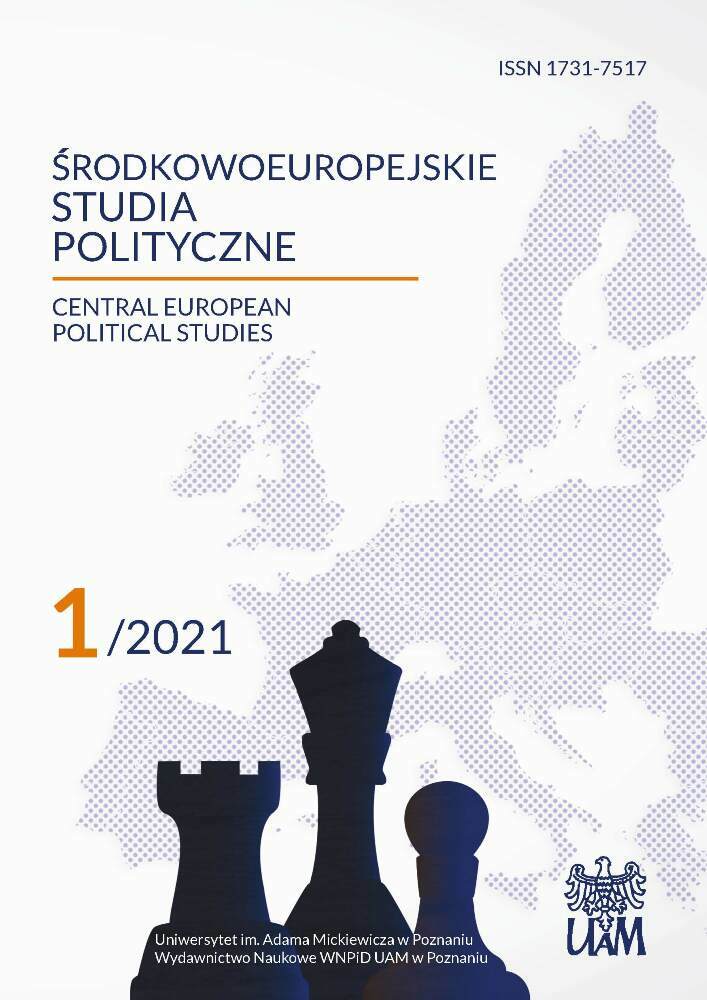Abstract
The issues of the EU’s activities concerning the quality of democracy in member states are studied. On the examples of Estonia, Latvia and Lithuania, the effectiveness of EU projects to continue the liberal-democratic transformation in member states with a post-totalitarian past where the risk of regression of democracy remains, is assessed. The current goals of the EU are described as being insufficient in terms of properly preventing and counteracting the decline of the quality of democracy, as well as for inculcating the values of liberal democracy. The need to intensify the EU’s activities in the direction of monitoring the observance of democratic standards is explained by the stagnation/regression of the quality of democracy in the countries of the recent EU enlargements, including the Baltic States. The actions of the EU’s institutions towards member states, where democracy shows stagnation/regression, are assessed as inconsistent, due to the possible consequences of this destructive process. The EU’s lack of attention to strengthening the values on which the EU is based is emphasized, which is seen as the main reason for the present deterioration in the quality of democracy. The requirement to construct a new format of European democracy and new mechanisms to ensure its quality is highlighted.
References
Anti-money laundering and counter-terrorist financing measures. Lithuania. Fifth Round Mutual Evaluation Report (2018), MONEYVAL Secretariat, Directorate General of Human Rights and Rule of Law, Council of Europe, Strasbourg.
Council of the EU (2017), The Rome Declaration, https://www.consilium.europa.eu/en/press/press-releases/2017/03/25/rome-declaration/pdf, 21.08.2020.
Council of the EU (2019), The Sibiu Declaration, https://www.consilium.europa.eu/en/press/press-releases/2019/05/09/the-sibiu-declaration/#, 26.09.2020.
European Commission (2019a), Growing together: EU support to Estonia that joined in 2004, https://ec.europa.eu/regional_policy/sources/docgener/factsheet/eu10_2004/factsheet_growing-together_et_en.pdf, 3.09.2020.
European Commission (2019b), Growing together: EU support to Latvia that joined in 2004, https://ec.europa.eu/regional_policy/en/information/publications/factsheets/2019/growing-together-eu-support-to-latvia-that-joined-in-2004, 9.08.2020.
European Commission (2019c), Growing together: EU support to Lithuania that joined in 2004, https://ec.europa.eu/regional_policy/en/information/publications/factsheets/2019/growing-together-eu-support-to-lithuania-that-joined-in-2004, 30.09.2020.
European Commission (2019d), Opening Statement in the European Parliament’s Plenary Session, https://ec.europa.eu/commission/presscorner/detail/en/speech_19_4230, 17.09.2020.
Fotopoulos S. (2019), What sort of changes did the Spitzenkandidat process bring to the quality of the EU’s democracy?, “European Viewˮ, vol. 18, no. 2.
Godfrey K., Youngs R. (2019), Toward a New EU Democracy Strategy, Carnegie Endowment for International Peace, Washington.
Müller J.-W. (2015), Should the EU Protect Democracy and the Rule of Law inside Member States?, “European Law Journalˮ, vol. 21, no. 2.
Naujokaitytė G. (2020), Baltic states want more out of Horizon Europe, https://sciencebusiness.net/framework-programmes/news/baltic-states-want-more-out-horizon-europe, 22.10.2020.
Raine S. (2019), Europe’s Strategic Future: From Crisis to Coherence?, Routledge for the International Institute for Strategic Studies, Abingdon, UK.
Scheppele K. L., Kochenov D., Grabowska-Moroz B. (2020), EU Values Are Law, after All: Enforcing EU Values through Systemic Infringement B. Actions by the European Commission and the Member States of the European Union, https://academic.oup.com/yel/advance-article/doi/10.1093/yel/yeaa012/6064852?searchresult=1, 05.01.2021.
License
Copyright (c) 2021 Nataliia Khoma, Ihor Vdovychyn

This work is licensed under a Creative Commons Attribution 4.0 International License.

